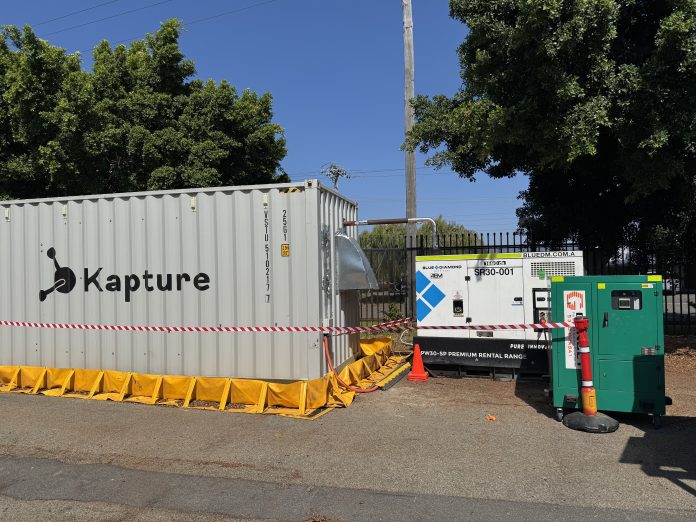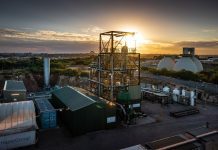
A three-month trial in Perth has marked a significant step forward in the use of carbon capture, usage and storage (CCUS) technology to reduce emissions from diesel generators, with Melbourne-based start-up Kapture partnering with Horizon Power to test the feasibility of applying the solution in regional power systems.
The pilot trial, which used a standalone power system (SPS) generator, tested Kapture’s technology that directly captures CO? emissions from a diesel generator’s exhaust and converts them into a sediment suitable for sequestration in concrete.
The findings from the trial will be used to assess the broader potential of the technology across Horizon Power’s regional footprint.
“This trial supports the development of a later in-field trial to highlight the opportunity for the decarbonisation of service delivery using existing assets, supporting a cleaner, greener future for our regional and remote customers,” said Horizon Power’s Acting Chief Executive Officer, Krystal Skinner.
Horizon Power, Western Australia’s regional energy provider, joined forces with Kapture to explore how the technology could help support the Cook Government’s goal of reaching net zero carbon emissions by 2050.
The trial was Kapture’s first real-world deployment of its technology outside a laboratory setting.
Raj Bagri, CEO of Kapture, said the results showed promise for deploying the technology more widely. “Our partnership with Horizon Power demonstrated that carbon capture can be both practical and scalable, even in remote and diesel-reliant environments. This is a clear example of how industry and innovation can align to accelerate climate solutions that are not just promising but ready to deliver,” he said.
Throughout the trial, both parties measured the impact of the technology on generator performance and assessed the efficiency of carbon capture.
According to Kapture, the captured CO? was permanently sequestered into concrete, through a partnership with Perth-based concrete manufacturer Permacast.
Skinner said the collaboration provided a valuable opportunity to work with emerging technologies aimed at decarbonising hard-to-abate sources.
“Diesel fuel is difficult and costly to abate in small regional microgrids. Horizon Power is focused on increasing the use of renewable energy in our systems, but in the meantime, it is important for us to do everything we can to reduce our carbon footprint,” she said.




















